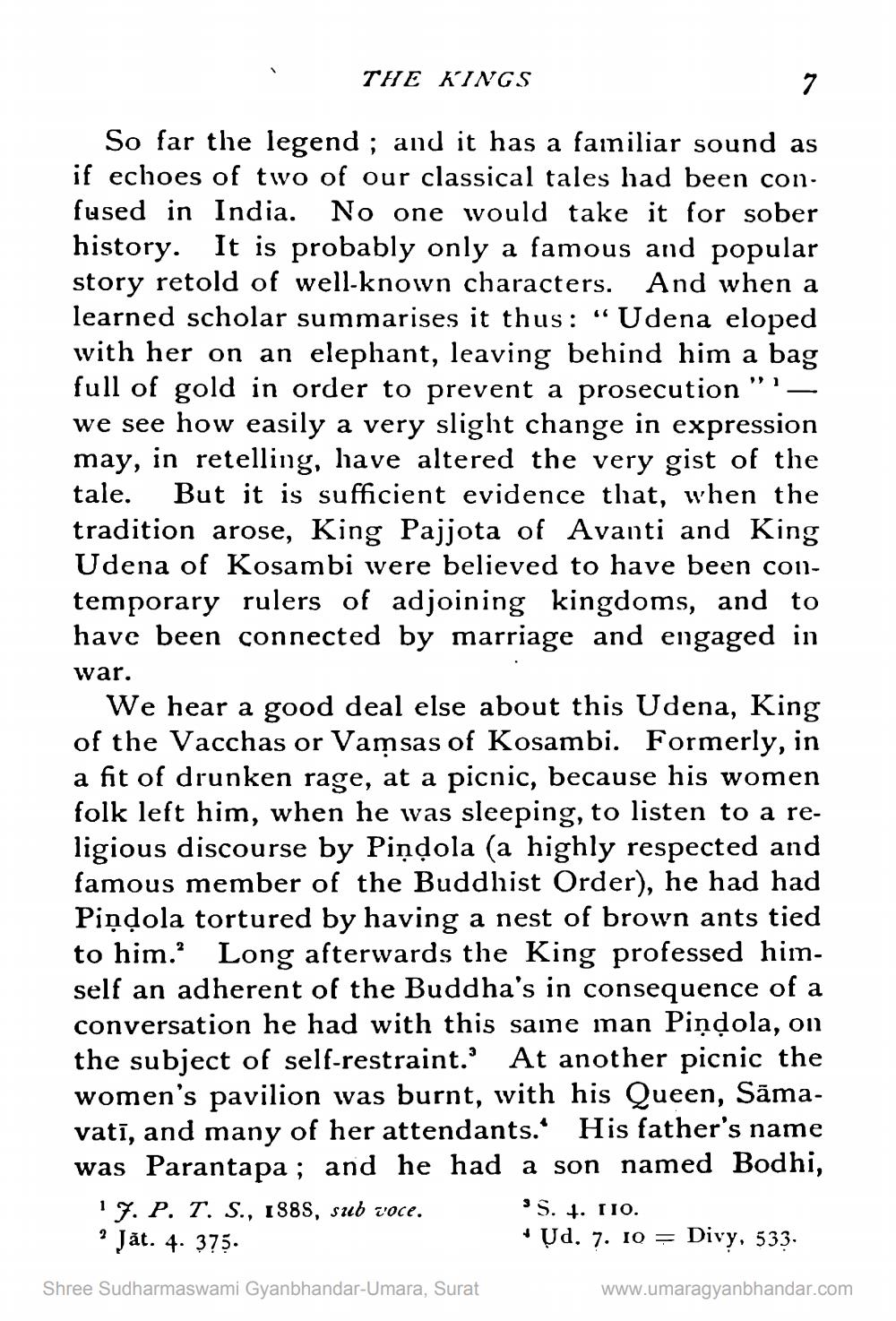________________
THE KINGS
So far the legend ; and it has a familiar sound as if echoes of two of our classical tales had been con. fused in India. No one would take it for sober history. It is probably only a famous and popular story retold of well-known characters. And when a learned scholar summarises it thus: “Udena eloped with her on an elephant, leaving behind him a bag full of gold in order to prevent a prosecution": we see how easily a very slight change in expression may, in retelling, have altered the very gist of the tale. But it is sufficient evidence that, when the tradition arose, King Pajjota of Avanti and King Udena of Kosambi were believed to have been contemporary rulers of adjoining kingdoms, and to have been connected by marriage and engaged in war.
We hear a good deal else about this Udena, King of the Vacchas or Vamsas of Kosambi. Formerly, in a fit of drunken rage, at a picnic, because his women folk left him, when he was sleeping, to listen to a religious discourse by Piņdola (a highly respected and famous member of the Buddhist Order), he had had Piņdola tortured by having a nest of brown ants tied to him. Long afterwards the King professed himself an adherent of the Buddha's in consequence of a conversation he had with this saine man Piņdola, on the subject of self-restraint.' At another picnic the women's pavilion was burnt, with his Queen, Sāmavatī, and many of her attendants. His father's name was Parantapa; and he had a son named Bodhi, 17. P. T. S., 1885, sub voce. S. . u10. ? Jät. 4. 375.
Ud. 7. 10 = Divy, 533.
Shree Sudharmaswami Gyanbhandar-Umara, Surat
www.umaragyanbhandar.com




